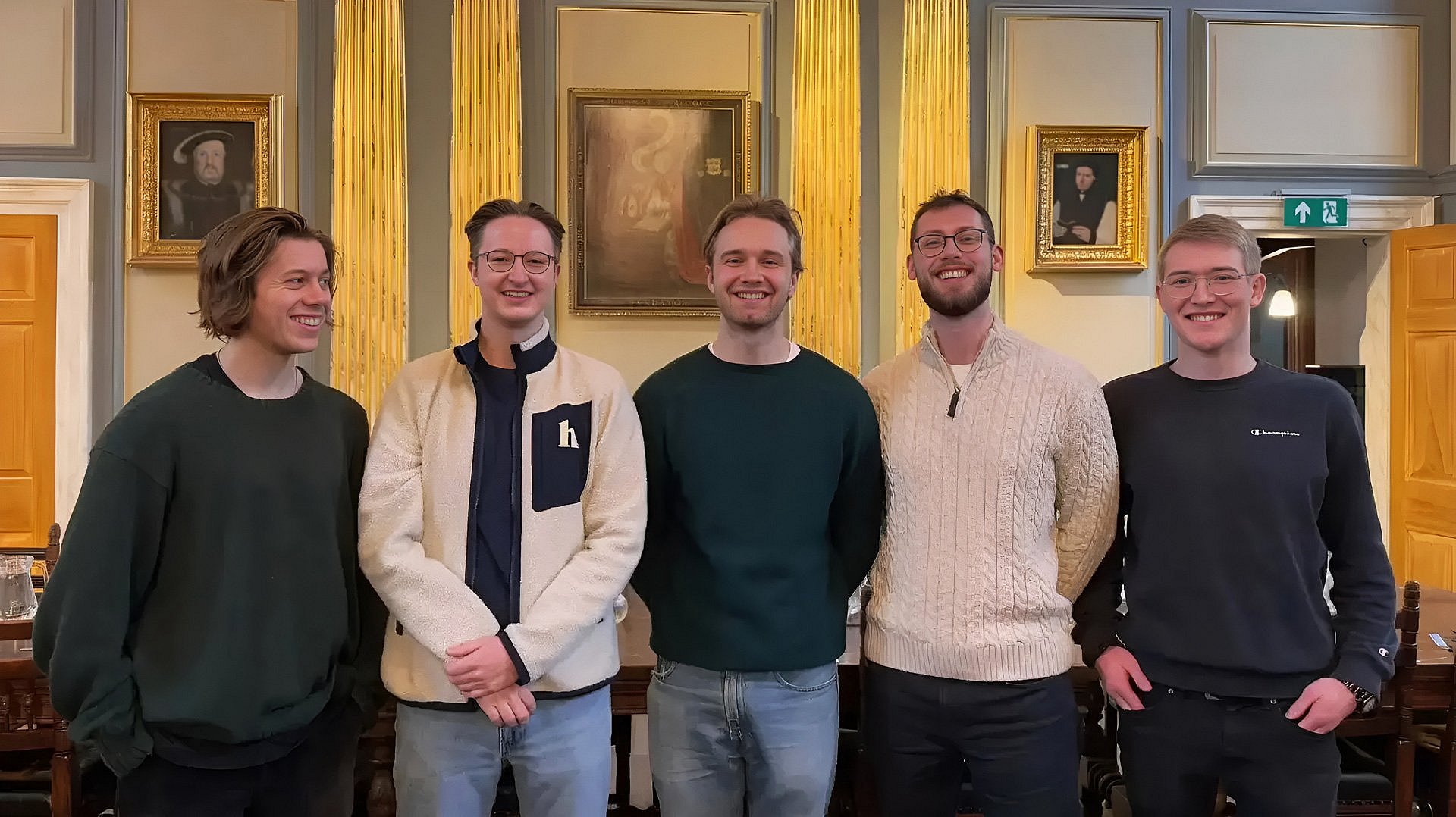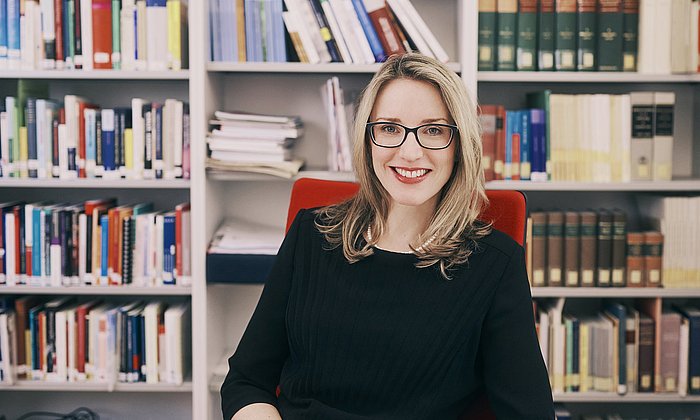wahl.chat: A student-created AI tool supports voting decisions
Technology for Democracy

It’s nothing but a coincidence that it was in the motherland of modern parliamentarianism where Robin Frasch, Sebastian Maier, Roman Mayr, Michel Schimpf, and Anton Wyrowski decided to develop a voting advice application that can do more than the established ones – but sure a telling one. The five already knew each other from Munich. They were doing research for their Master’s and doctoral theses in Cambridge when they got to talking about the upcoming elections over lunch. And they quickly agreed that there should be a better and easier way to learn about parties’ programs and policies.
Leveraging technical and societal potentials
“As computer scientists and psychologists, we were not only disappointed by the technical potential that existing voting advice applications leave unused,” explains Robin Frasch, who is currently completing his Master’s degree in Robotics, Cognition, Intelligence at TUM, “but even more so by the fact that their participatory potential is not being leveraged.” After all, many tools have been limited to users responding to predefined policy statements. Frasch’s group wanted something different: a truly interactive tool for individual interaction with the parties’ programs. And so they developed a new service: wahl.chat.
Within a week, the concept was set up. After a month, the prototype went live. And since January, wahl.chat has been available to the public. Based on various Large Language Models (LLM) such as ChatGPT-4o and the intelligent search engine Perplexity AI, wahl.chat allows to ask questions about the policies of various parties running in the Bundestag elections. Users can enter into an open dialog with the LLM to receive well-founded answers to their specific questions. wahl.chat not only includes election programs, but it also compares the statements with the actual voting in the Bundestag, and uses news sources to assess whether and how election promises can be realistically implemented. After all, the question of whether a tax should be lowered is only as interesting as whether it can actually be financed.
From a dialog with AI to a dialog with politics
“Ultimately, LLMs can break down information barriers in almost every area,” Frasch is convinced. And where could this be more relevant than in democratic decision-making? Continuing to strengthen it is the group’s goal, even beyond the Bundestag elections.
Not all of the application’s potential has been exploited yet: Other document types, such as plenary minutes, are to be added to the database, and as much of the political reporting as possible is to be taken into account. And that’s not all: in the future, wahl.chat could develop into a platform through which citizens not only receive answers to their questions about political affairs but also express their wishes to the political players. The dialog about politics would thus become a dialog with politics.
To achieve this, wahl.chat must be placed on a sound financial footing that continues to guarantee objectivity and neutrality. After all, the project has so far been financed exclusively by donations. “We want to reach as many people as possible – but every new user costs money.” More than 150,000 people have used the tool to learn about parties’ policies. And the numbers are rising sharply.
This demand shows how valuable technologically advanced services are in supporting participation in the political process. Robin Frasch encourages everyone to make use of these opportunities: “Get informed – and then go vote!”
Technical University of Munich
- Konstantin Götschel – TUM CST–Communications
- konstantin.goetschel@tum.de


